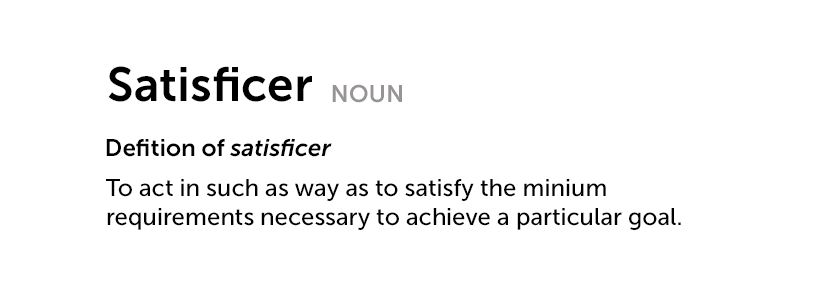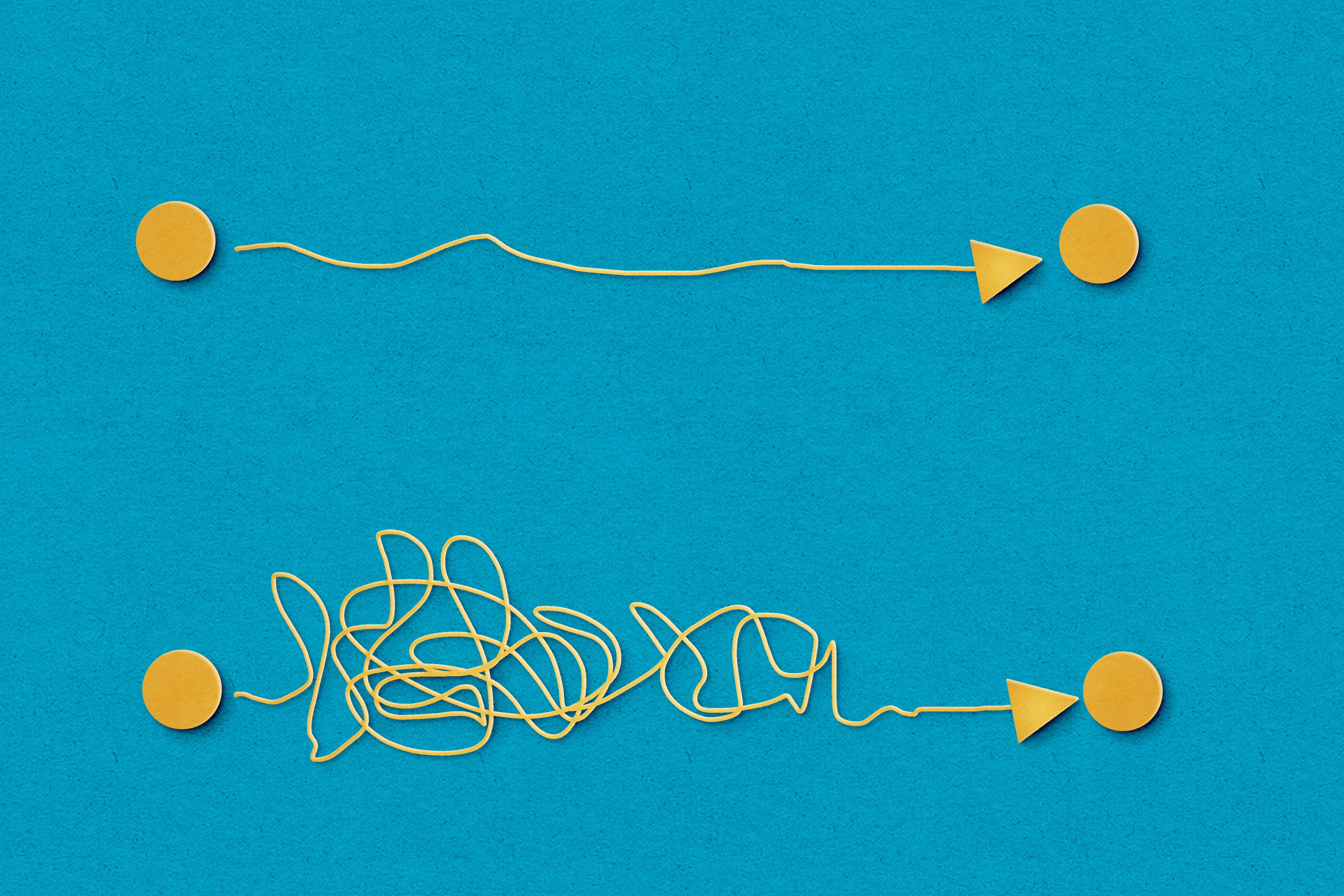Author:
Rob Brewer
It’s holiday season. Not in an American Christmas sense, but in a British, go to Spain and turn the colour of a lobster kind of sense. I was recently talking to a colleague about our respective partners being the chief holiday organiser and how they take it very seriously with an in-depth, thorough review of a range of hotels. I am definitely not that person, when it comes to holidays anyway. Don’t get me wrong, I love a holiday, but show me a fairly good rating and some decent reviews and I’m sold.
But it got me thinking about the way humans make decisions, and the idea that people fall into two categories: maximisers and satisficers.
Maximisers are looking for the perfect decision. They carefully assess all the options and seek many inputs to make sure their decision is the optimum. Satisficers on the other hand, are just looking for ‘good enough'. Does it meet basic requirements? Yes? Then that’ll do.
What’s interesting about this is that maximisers often find it difficult to make a decision, and when they do, despite the fact that their decisions are normally better, they are more likely to be less satisfied with the outcome.
On the other hand, satisficers realise that there are always constraints, and they can’t all be addressed. If there’s never going to be a perfect outcome, why bother with all that effort? That’s the satisficer’s way.
A person is never simply a maximiser or satisficer. Take me for example. You already know I’m a satisficer when it comes to holidays, but ask me to pick a new TV and I’ll disappear down a rabbit hole of reviews, display types and lists weighing up cost vs benefits until my partner rolls her eyes and tells me to just pick one.
So why am I going on about this? Well, it got me thinking about whether designers should be maximisers or satisficers. On the face of it, we’re definitely maximisers. We’re looking for insight all the time. What are users telling us? What is the data telling us? Have we come up with the right solutions? Is there a market for it? Everything we do is driven by insight.
This can be problematic though. The obsession with insight can lead us to a place where we think we never quite know enough to move forward. Particularly in cases where you’re exploring quite a large subject. Take something like formative learning for example.
Who’s going to give you the insight you need? Teachers? Students? Definitely. But wait, what about headteachers, other school leaders, awarding organisations and local authorities? Oh, and what about overseas countries, public and private establishments and even schools, colleges and universities? Parents might also have something useful to add.
Suddenly, the gaps seem pretty big. The overwhelming urge is to fill them before you can even think about coming up with solutions. We’re maximising again and at this rate, we’ll finish discovery just before retirement and we’ll have spent the research budget for the next 20 years on it.
But we need insight right? How else will we get it? This is where we need to be a bit more of a satisficer. Rather than knowing everything, we must make a judgement call on when we think we know enough to move forward. This is completely acceptable, and absolutely the right thing to do.
We’re not committing loads of resources to our decision. All we’re doing is moving into ideation. We’re not even giving up on gathering insight. By designing to the insight we already have, we can come up with ideas that we can test with our users. We’ll get a load more insight from user testing. Users will also tell us whether our ideas are on the right track. If our ideas are promising, we can refine them and if they aren’t, we’ve learnt that we need to do a bit more research. Either way, we’ve learnt something, so it's win-win.
This is especially important when you’re innovating. Quite often, our innovation projects focus on finding value in completely new areas that the business hasn’t explored yet. And if you read my previous article, these are often areas we don’t know much about either. Both forces push you towards maximising, but there has to be a limit. Whilst insight is valuable in its own right, it’s not going to solve user problems on its own. We need to transform it into solutions, and we can only do that if we make ourselves a bit more like satisficers.
Getting it right is a balancing act. Move too soon and you risk making uneducated guesses. Take too long and you’ll never get out of the discovery stage. Aristotle wrote about ‘the golden mean’ – basically, the right amount of deliberation – and that’s what good product design and innovation is.
Get your ideas in front of users and they’ll tell you if you’ve learnt enough or not.


